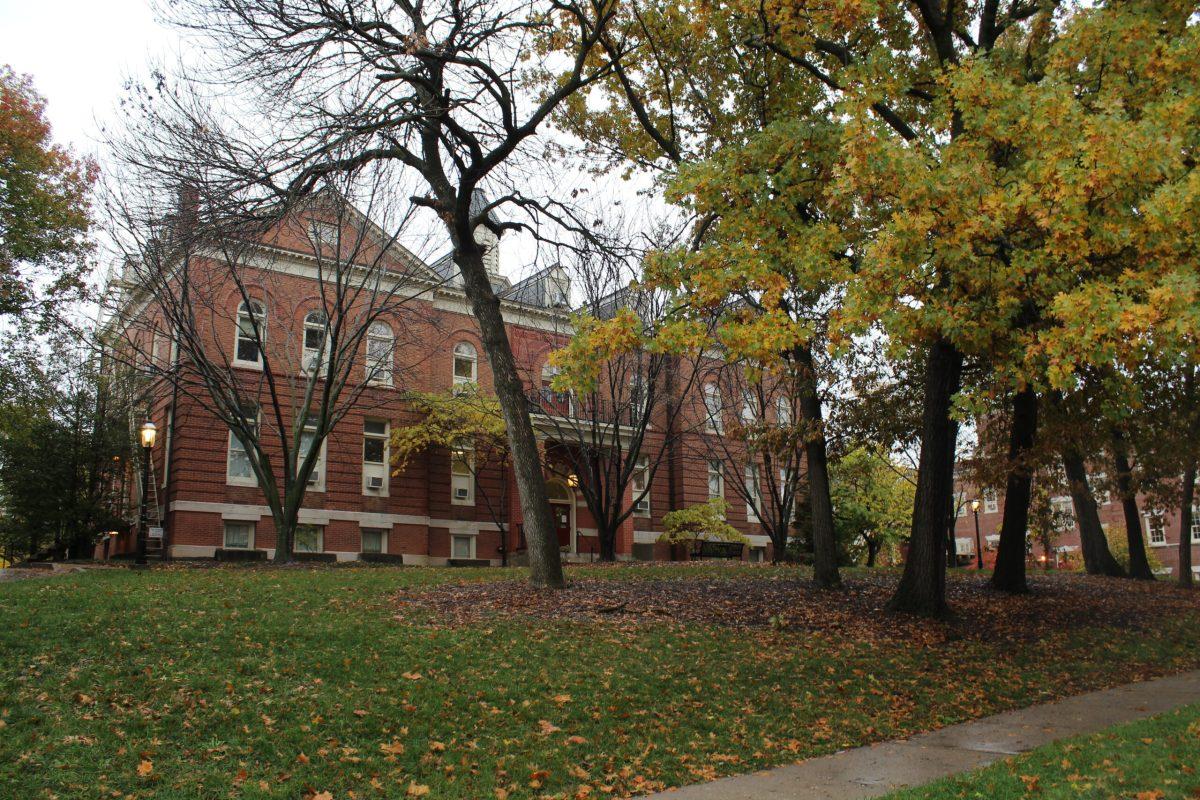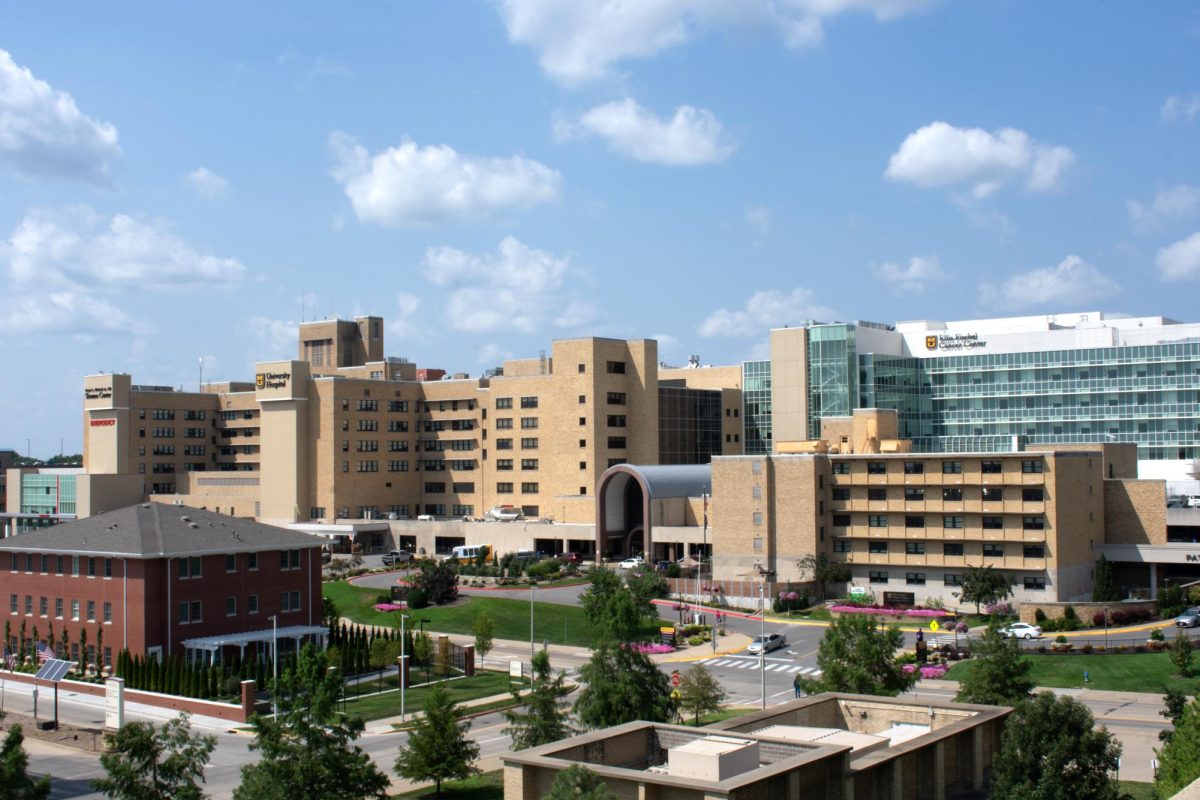After a report by outside consultant Keeling and Associates found that MU’s mental and behavioral health resources “serve students neither effectively nor appropriately,” the university is making changes to its services.
Currently, mental health services are offered in three different places: Behavioral Health at the Student Health Center, the Counseling Center and the Wellness Resource Center. The report from Keeling and Associates found that “health promotion and outreach is delivered separately and with little coordination across all three services.”
Students have voiced their complaints about counseling services on campus, often taking to social media to express their concerns. MU junior Natalie Nepper said her story began in November 2016 when she sought help from the MU Counseling Center. However, Nepper decided not to follow through upon discovering that there was no availability to meet with a counselor until the following February — four months after her request.
“I just scratched that idea because it was too long,” Nepper said. “Who knows what could happen between now and four months?”
In September 2017, Nepper said her mental health began to decline once again. She began to have frequent panic attacks, as well as unusual episodes of déjà vu, increased heart rate and dilating and constricting pupils.
After one particularly intense panic attack in which Nepper said she could not control her breathing, her roommate brought her to Behavioral Health at the MU Student Health Center. After Nepper was prescribed drugs to temporarily soothe her anxiety, professionals at Behavioral Health recommended a follow-up counseling session. It was here, Nepper said, that her unusual “déjà vu” episodes were chalked up to her “dissociation” due to stress.”
Nepper said she did not return to Behavioral Health for another follow-up appointment. While full-time students are entitled to four free sessions with a psychologist at Behavioral Health per semester, she thought she would only receive three sessions.
“I just felt like I was crazy talking to [the counselor],” Nepper said. “It didn’t feel very productive for me to go back. I knew I wouldn’t be able to get my panic attacks to stop in three sessions. Why waste time talking to one person three [different] times [when] they’re just gonna tell me I have to go somewhere else?”
When her anxiety worsened later that fall, Nepper made the decision to withdraw from the fall semester and take the next one off to get help from mental health professionals outside the university. It was then that Nepper was diagnosed with anxiety disorder, panic disorder and depression.
She also learned from these psychologists and psychiatrists that her episodes previously identified as “dissociation” were actually simple partial seizures, also known as focal onset seizures, brought on by a different medication she was on.
“That really freaked me out,” Nepper said. “Because I had been having seizures for a year at that point and I was just made to seem like I was crazy.”
While Nepper said she doesn’t place any blame on Behavioral Health for misidentifying her condition, she does wish they had referred her to other professionals for an official diagnosis.
“It really messed up my life,” she said.
Nepper returned to MU in May and now sees an off-campus therapist weekly, as well as an off-campus psychiatrist biweekly.
MU senior Tyler Riley also cited issues with the university’s mental health services. Riley said she sought treatment at the Counseling Center for anxiety that stemmed from an abusive relationship. She cited understaffing and lack of awareness as her primary concerns. Riley said she “had to ask around about the Counseling Center” to get information and would like to see more awareness and conversation about mental health and the available resources for struggling students.
Despite these concerns, Riley said she is “very grateful” for the counseling center, particularly the emergency services available through the counseling center.
According to the Counseling Center website, the center “has therapists on call during business hours to offer help” for students in crisis. These on-call therapists can also be reached after-hours through a 24-hour crisis hotline.
“I feel like the people that they do have [at the Counseling Center] are good people who care about the issues and the people that come in,” Riley said. “A lot of people are afraid to speak out about any type of mental illness or mental health issues, so I think that they should try to kind of eliminate that shame wherever they can by creating conversations.”
Since the report by Keeling and Associates was released, the university has taken steps to improve its services. Liz McCune of the MU News Bureau, speaking on behalf of the Counseling Center, Student Health Center and Wellness Resource Center, said MU is working to combine these three resources.
“At this time, we are focused on aligning the Counseling Center, Student Health Center and Wellness Resource Center and better coordinating our services with the goal to provide students greater and more timely access to services,” McCune said. “We understand that students are looking for a one-stop-shop experience to serve their mental health needs, so the university is being responsive to that.”
In October, Richard Keeling of Keeling and Associates met with the Missouri Students Association senate to discuss plans to integrate the three services into a new “Center of Student Health and Well-Being.” The Maneater [reported](https://www.themaneater.com/stories/campus/the-briefing-top-university-administrators-meet-with-msa-senators-about-health-system-change) that “the integration will begin around Dec. 1 in order to allow time for the office to start operations before the Spring 2018 semester.”
In the meantime, however, McCune said students can use the website wellbeing.missouri.edu as a “one-stop shop” to access information on all three resources, and emergency assistance is always available.
“I think it’s important to note that any student who is in crisis will be seen by a professional that day,” McCune said. “Students who are in an acute crisis would not be turned away.”
In addition to the integration, MU has taken steps to increase staff. The Student Services Enhancement Fee that passed in March 2017 brought in more money for campus mental health resources. According to the Division of Student Affairs, money from the fee has already allowed the Counseling Center to hire one full-time counselor and search for two others. Additionally, the new revenue “funded two Mizzou Cares events to promote awareness of mental health resources available to students.”
“In addition to filling positions with funding from the student fee, the Counseling Center made changes this summer to increase the number of student appointments available.” McCune said.
After all of Nepper’s difficulties with the university’s mental health services, she is relieved to hear about a plan for the future of these services.
“I like the idea that they have a plan and that they’re not keeping everything the same,” Nepper said of the integration of MU’s mental health services. “Hopefully with all that staff they’ll be able to get everyone in and refer them to other people within their behavioral health program if they can’t specifically help them, or refer them to outside sources.”
Nepper added that anyone struggling with anxiety, panic or depression should seek help at all costs, whether from on or off-campus resources.
“Reach out and know that you’re not a burden, even if you feel like you are,” Nepper said. “Something is better than nothing in every single case. Don’t be like me and just give up and withdraw and go home when there’s so many people who can and will help you.”
_Edited by Morgan Smith | [email protected]_














